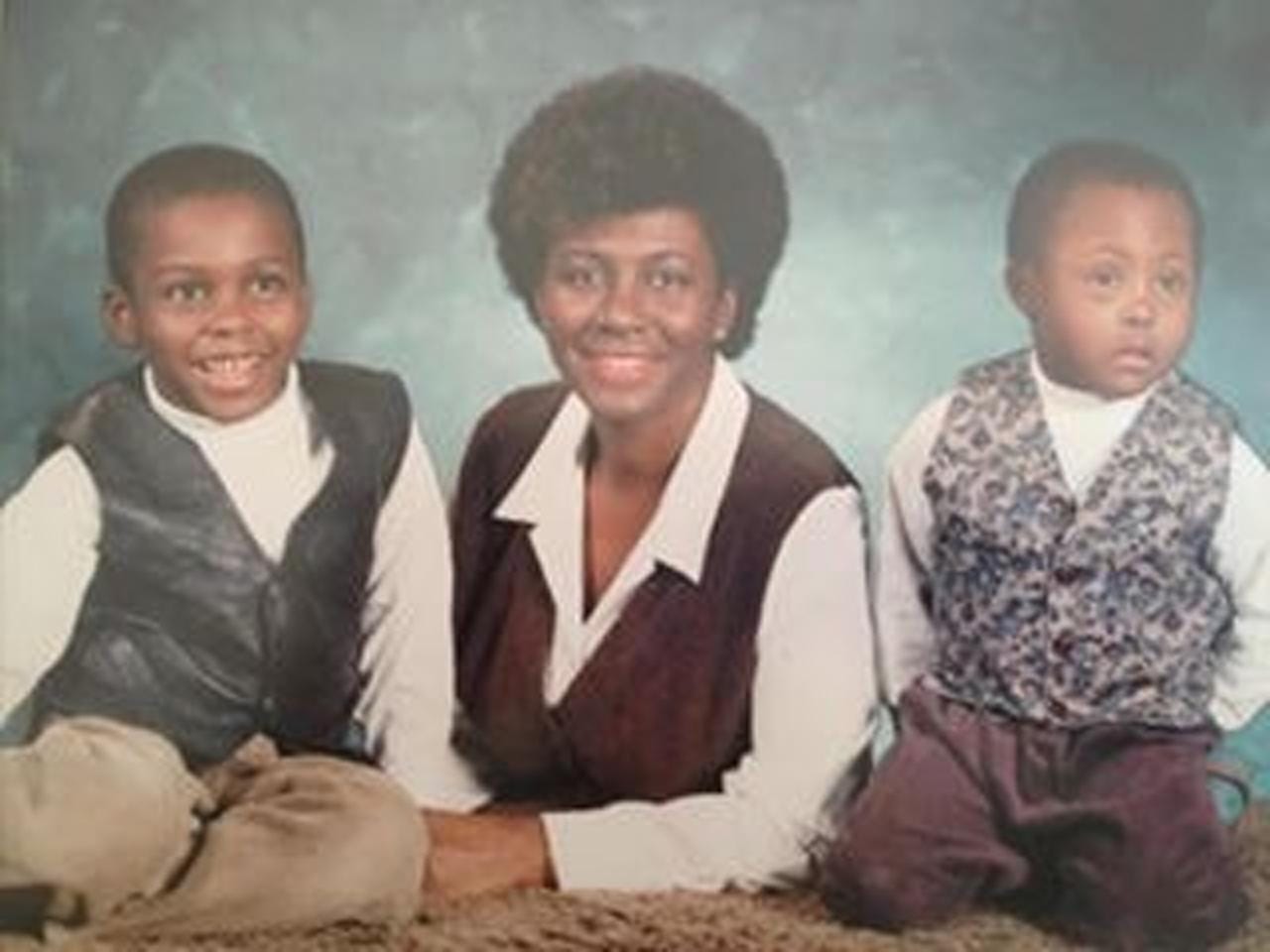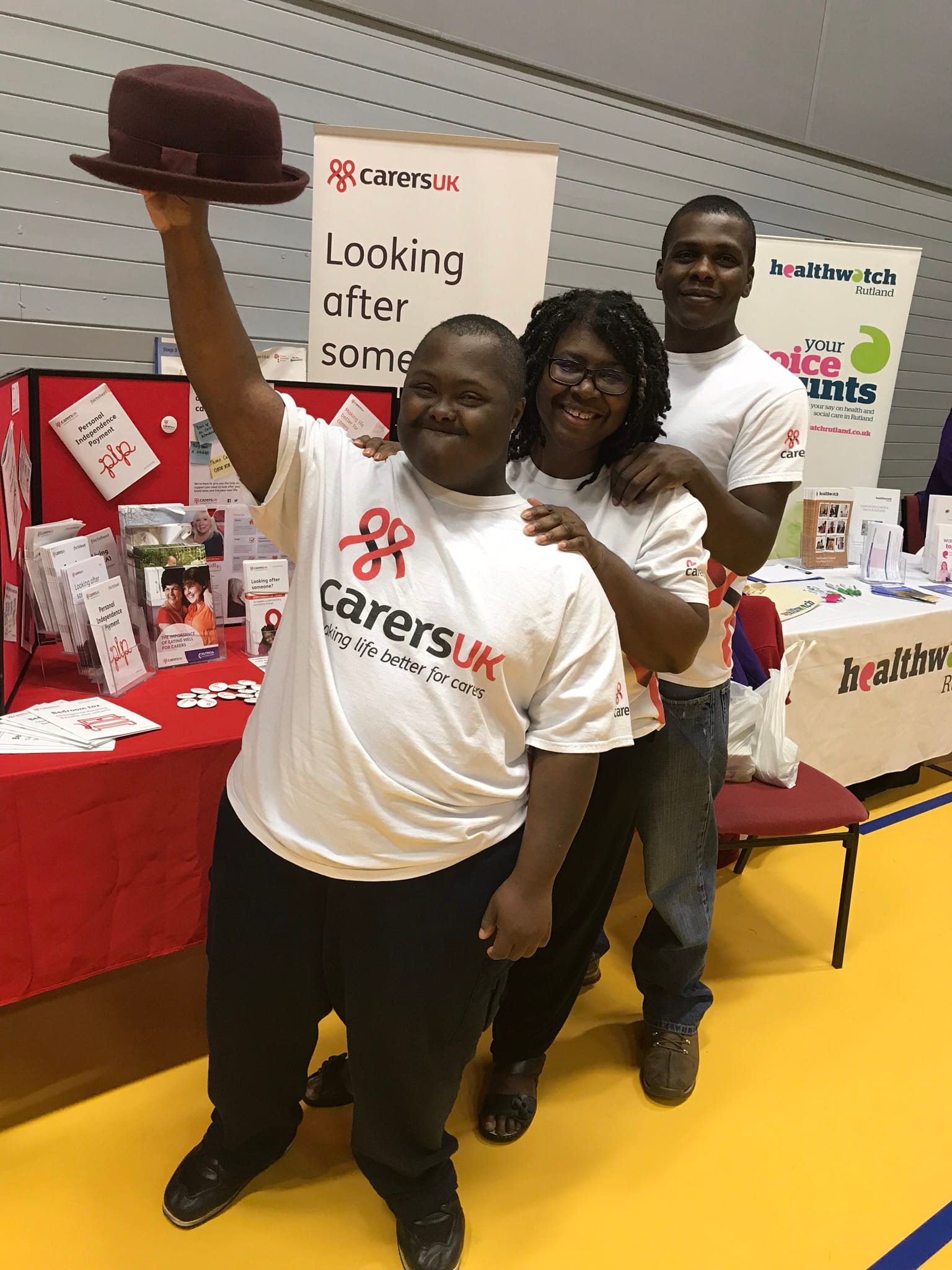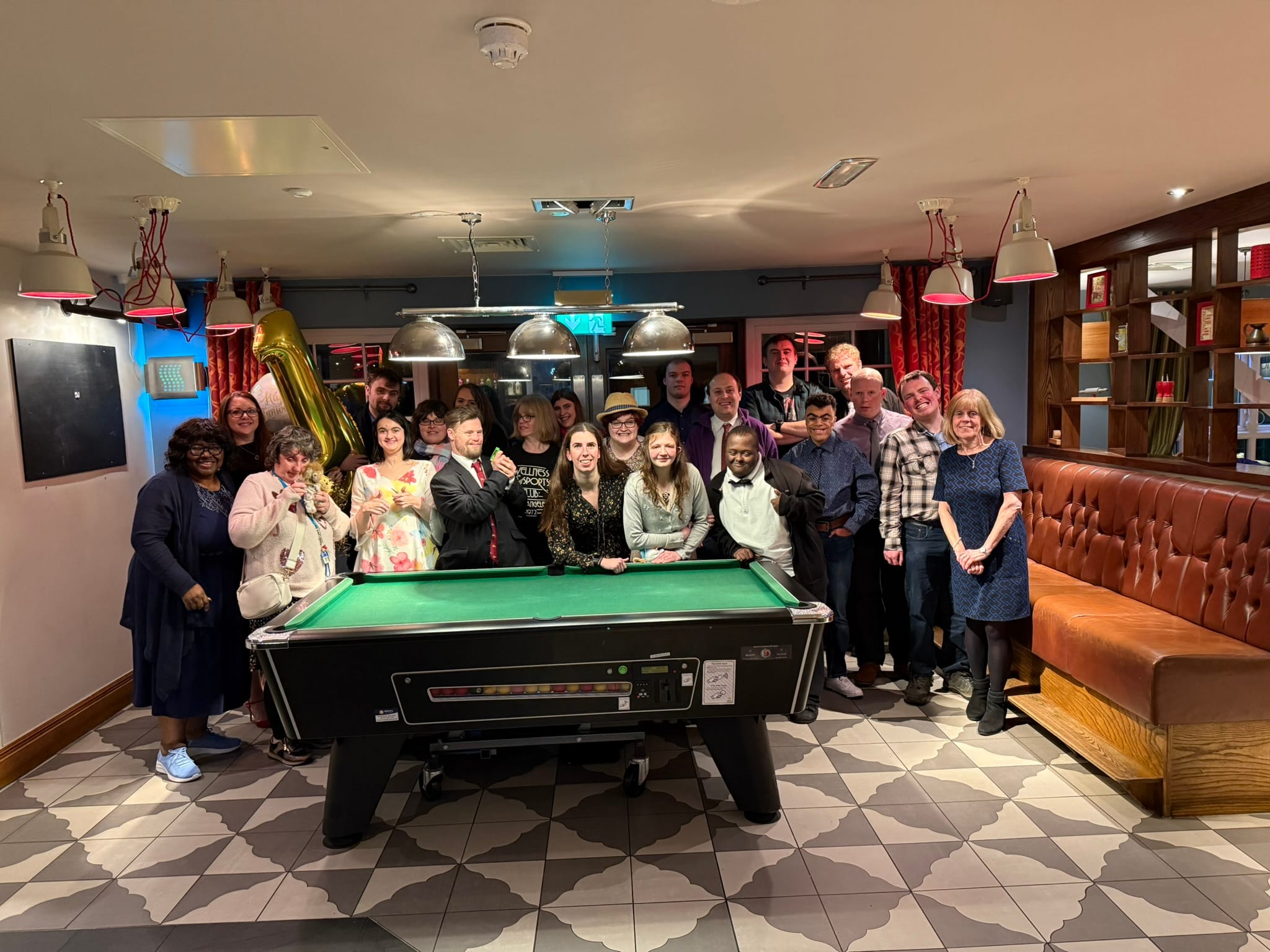Jacqui & Joshua’s story: How social care supports our family to live well

Joshua, who has Down syndrome, autism and very limited speech, lives with his mum Jacqui in Rutland. Jacqui now also lives with health conditions and needs social care support herself. Their journey to getting help has not been easy, but having choice and control over their care has made all the difference, bringing stability and reassurance so they can enjoy life together. This is their story.
I gave birth to my son Joshua in Oldham in 1992. I was put into a small, dark, dismal room and it was there that I was brutally told by a paediatrician, “oh yes, he’s got Down syndrome” and walked away, leaving me stunned and alone with my baby. I had no idea or even suspected that my beautiful son had any disabilities at all.
Growing up, Joshua went to nursery and was well supported. The nursery teacher was a lovely, caring person who made every effort to make sure that the other children understood Joshua and that there were adaptions made so he could enjoy nursery like all the other children.

Joshua went to a mainstream primary school where I volunteered as a teaching assistant and then went to a special secondary school in Oldham and then another in Corby when we moved. Joshua had a great experience at secondary school. One of his teachers became his Personal Assistant (PA) to support Joshua on weekends and during the school holidays once he was no longer in her class. They had a great relationship and keep in touch; she never forgets to send him a card on his birthday and at Christmas.
Joshua then started college full time – but full time was not what I expected and not like school. He attended three days a week, with ‘progress weeks’ off every term. After six months, I struggled to juggle being a carer and a mother, whilst holding down a job and maintaining a home. I had become ill with the stress of it all which meant I had to give up my job. I also began to struggle with Joshua’s sometimes erratic and uncontrollable behaviour – social workers wanted to move him into supported accommodation but I refused. I didn’t want to send him away because he was ‘naughty’, he wasn’t. I knew there was something we needed to address.
So I called the GP and I just cried. I told him that for 23 years, I’d had no more than four hours’ sleep a night. The doctor agreed we needed to do something about it. Joshua was referred to the Learning Disability Team and, at the age of 21, he was diagnosed with autism. After his diagnosis, I worked with a Learning Disability Nurse to help me understand and manage Joshua’s behavioural issues. With their support, I learned a lot about how people with learning disabilities process information, which taught me how best to support Joshua in these situations. This was really effective and made a huge difference to us both.

Joshua is full of life and loves to keep busy with lots of different activities. He receives Direct Payments which allows him to spend time with multiple PA’s of his choice. They take him swimming, to boxercise, to play indoor bowls, to the cinema, and lots more. He also spends a couple days a week at Welly’s Work Place, a centre for adults with learning disabilities where he gets to do a wide variety of activities such as baking, cooking, arts and crafts – even furniture restoration!
Joshua loves music and going to see musicals at the theatre so he can sing along. He enjoys hanging out with his friends at the Out of Hours Club Rutland that I set up 10 years ago with other parent carers. We set it up as we felt that after age 25, there was a lack of opportunities for disabled adults to have fun. We meet once a week and have games nights, go to the pub, cinema or theatre – we’ve even tried go-karting. Initiatives like this are so important for people like Joshua. Members of the group pay for the activity they want to do which gives them a sense of responsibility and independence. But most importantly, it just allows them to have a good time.

Around 18 months ago, I also started needing care and support after I was diagnosed with osteoarthritis and spondylitis in my lower back which made personal care, shopping and housework almost impossible. I also receive Direct Payments to hire PAs for a few hours of support which allows me to keep caring for Joshua to the best of my ability.
For our family, social care is there to provide support where I cannot. As a mother, I should be the one caring for Joshua, but it’s not always possible for me. The most important thing is having independence, choice and control over the care that Joshua and I receive, everyone should have that right. If you are an employer, you want the best person for the job – and it should be the same for social care.
Take action: Join the Care Can’t Wait campaign
Sign our handraiserWe should all have the chance to live a good life, and social care allows us to do so.
But sadly, too often, this isn’t the reality for everyone in England today and without the glue of social care, lives are falling apart.
Without urgent action, care and support for us and our loved ones may not be there when we need it.
That’s why, together, we can and must transform care and support. By demanding ambitious reform and proper investment, we can build a network of care and support that works for everyone. Join our movement calling for change. You’ll receive campaign updates and discover how you can make a difference in your community and nationally.
Please join us, because care can’t wait.
